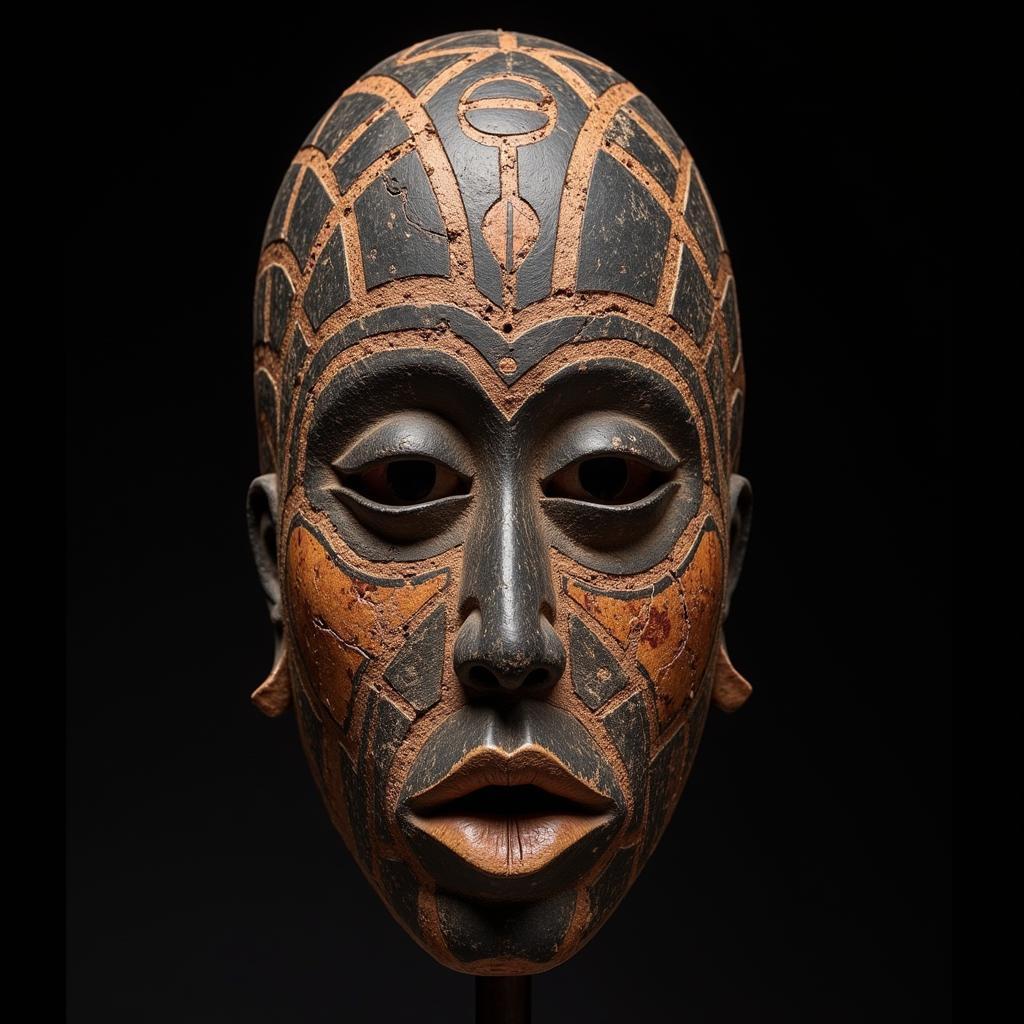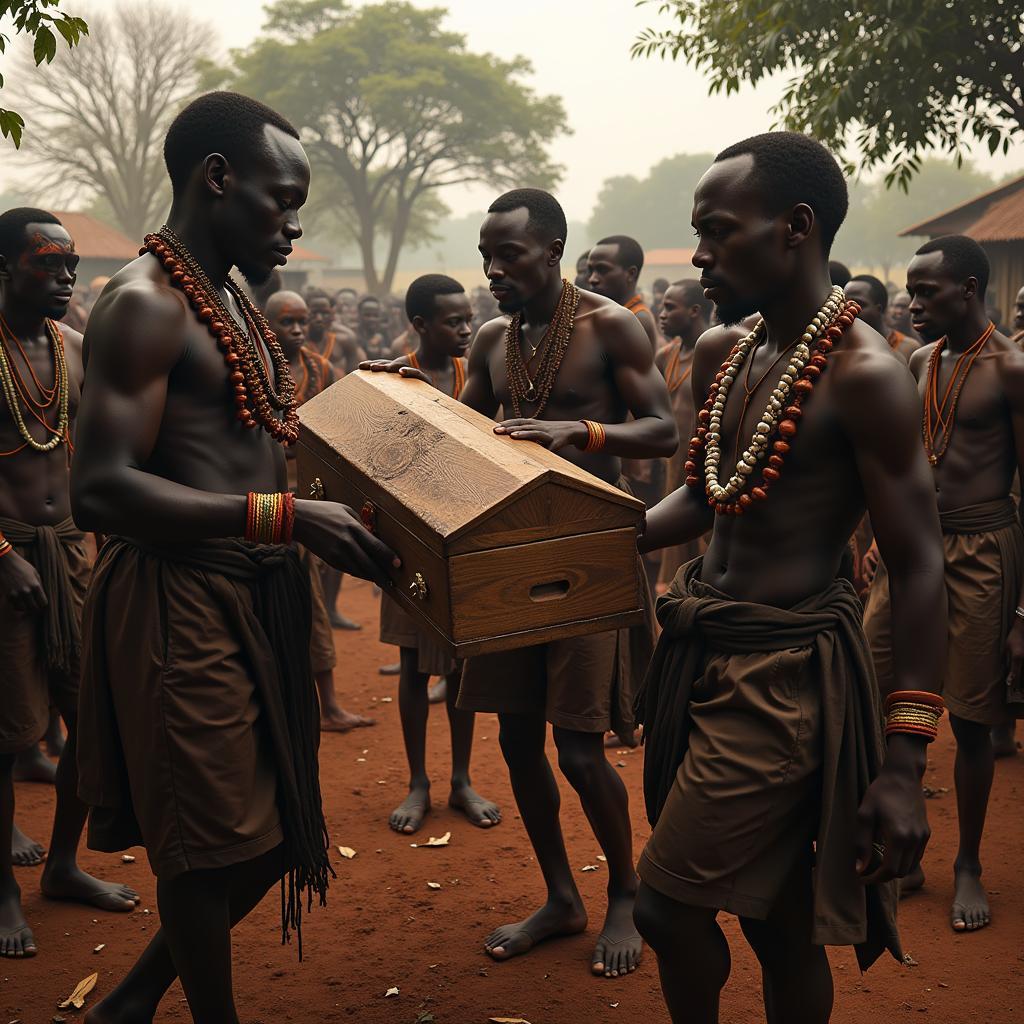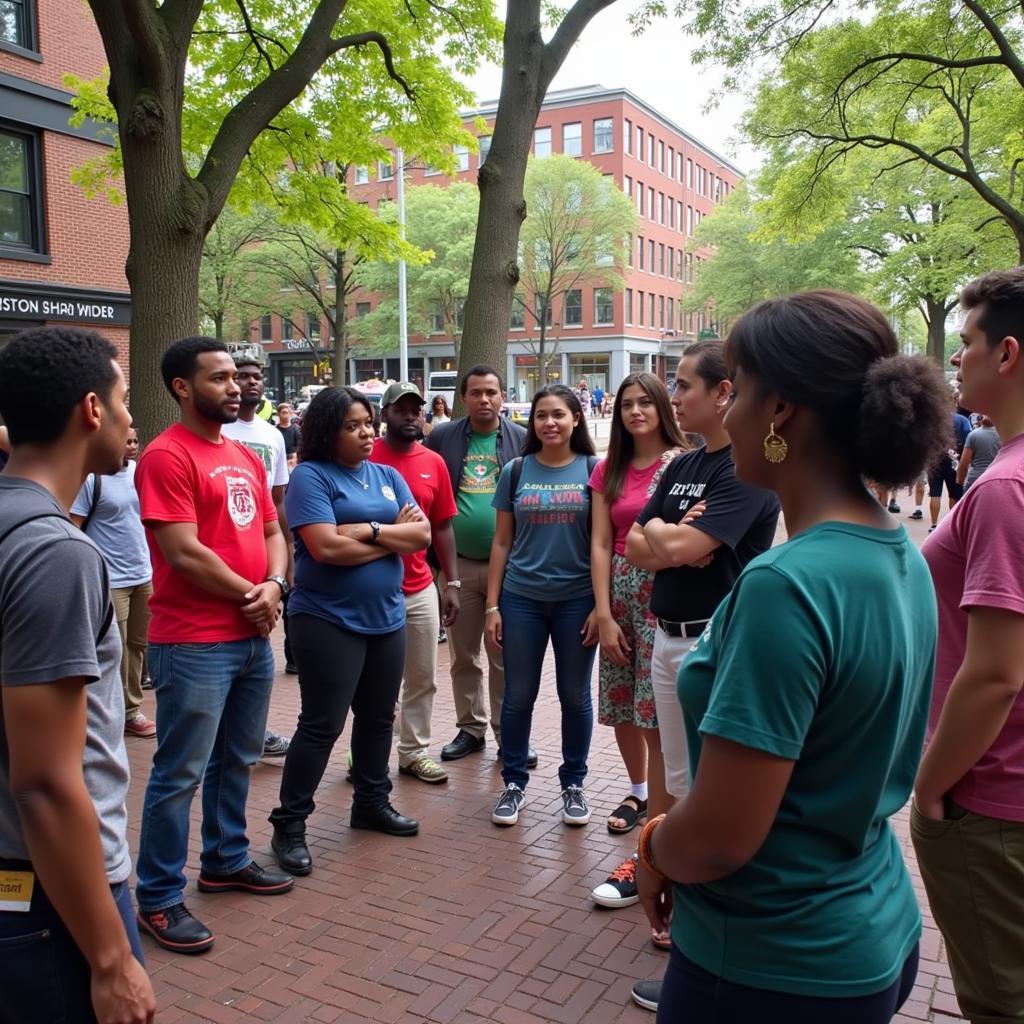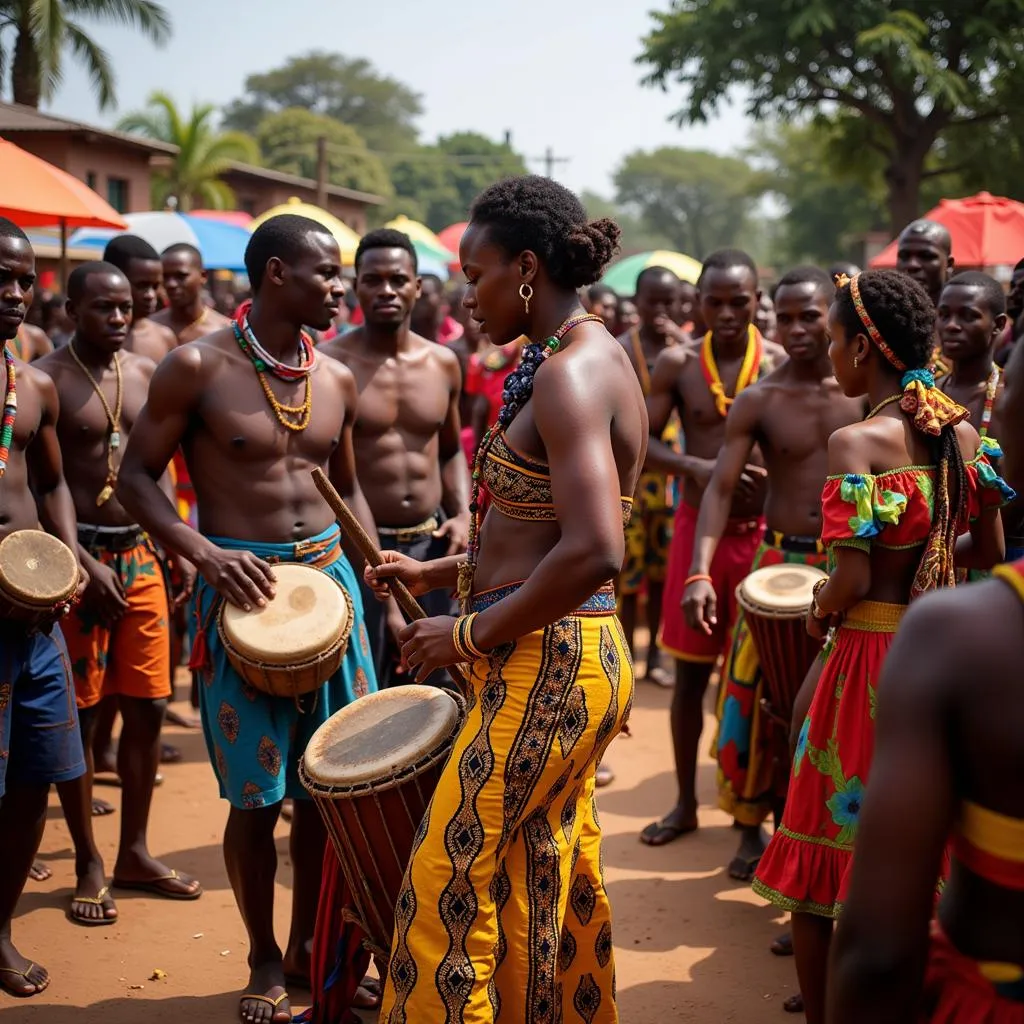Unveiling the Mysteries of the African Death Mask
African Death Masks are far more than mere artifacts; they are powerful expressions of cultural beliefs, artistic skill, and spiritual connections to the afterlife. These intricate creations, often crafted from wood, metal, or ivory, offer a glimpse into the diverse mourning rituals and ancestor veneration practices found across the African continent. From the regal masks of ancient Egypt to the vibrant masks of the Dan people of Liberia, each piece tells a unique story about the deceased and their community.
African death masks serve a multitude of purposes. They are often used in funeral ceremonies to honor the deceased and facilitate their transition to the spirit world. Some masks are believed to embody the spirit of the ancestor, allowing for communication and guidance from beyond the grave. Others are designed to protect the living from malevolent spirits or to represent powerful deities associated with death and the afterlife. The artistry and symbolism incorporated into these masks reflect the rich cultural heritage and spiritual beliefs of the people who created them. For instance, the use of specific colors, animal imagery, and geometric patterns can hold deep symbolic meaning, conveying messages about the deceased’s status, character, or accomplishments.
Exploring the Diversity of African Death Masks
The vast continent of Africa is home to a remarkable diversity of cultures, each with its unique approach to death and remembrance. This diversity is reflected in the wide range of styles and materials used in African death masks. From the highly stylized masks of the Yoruba people of Nigeria, known for their elaborate headdresses and intricate details, to the more abstract masks of the Dogon people of Mali, the artistic expressions are as varied as the cultures themselves. African drummers and dancers often incorporate masks into their performances, further connecting these artifacts to the spiritual and cultural life of the community.
The Significance of Materials and Symbolism
The materials used in creating African death masks often hold symbolic meaning. Wood, for example, is often associated with life and growth, while metal might symbolize strength and permanence. Ivory, a precious material, can represent purity and high status. Similarly, the colors and patterns used in the masks can convey specific messages. White might symbolize purity or the spirit world, while black might represent death or the unknown. These symbolic elements add another layer of complexity and meaning to the masks, making them more than just artistic objects but rather powerful conduits to the spiritual realm.
What do the colors on African masks symbolize?
Many African masks incorporate vibrant colors, each with its own symbolic meaning. For example, red can symbolize power and vitality, while African colors and their meanings provide a more in-depth understanding of the significance of different hues.
 Dogon Death Mask Symbolism from Mali
Dogon Death Mask Symbolism from Mali
African Death Masks: A Window into the Past
Studying African death masks allows us to understand not only the artistic traditions of different cultures but also their beliefs about death, the afterlife, and the importance of honoring ancestors. These masks offer a unique perspective on the spiritual and social structures of African societies, providing valuable insights into their history and worldview. They are a testament to the enduring power of art to express complex ideas and connect us to the past. African dance facts often reveal the importance of masks in rituals and ceremonies.
“African death masks are not simply objects of art; they are living embodiments of cultural memory,” says Dr. Adeola Olaniyan, a renowned expert in African art history. “They speak to us across time, sharing the stories and beliefs of generations past.”
How are African death masks used in ceremonies?
African death masks are often central to funeral rites and ancestor veneration ceremonies. They can be worn by dancers, placed on altars, or displayed in sacred spaces. Their presence is believed to invoke the spirits of the ancestors and facilitate communication between the living and the dead.
 African Death Mask in Funeral Ceremony
African Death Mask in Funeral Ceremony
Conclusion: Preserving the Legacy of African Death Masks
African death masks hold a profound significance, offering a window into the rich cultural tapestry of the continent. These powerful artifacts connect us to the past, reminding us of the importance of honoring our ancestors and respecting the diverse traditions surrounding death and remembrance. By studying and appreciating these masks, we can gain a deeper understanding of African cultures and their enduring legacy. These intricate objects, imbued with symbolism and artistry, continue to fascinate and inspire, reminding us of the universal human experience of grappling with mortality.
FAQ
- What are African death masks made of? African death masks are typically crafted from wood, metal, or ivory, with the choice of material often holding symbolic meaning.
- What is the purpose of an African death mask? African death masks serve various purposes, including honoring the deceased, facilitating their transition to the afterlife, and representing ancestral spirits.
- Are all African death masks the same? No, African death masks vary greatly in style and design, reflecting the diversity of cultures across the continent.
- Where can I see African death masks? African death masks can be found in museums around the world, as well as in private collections.
- How can I learn more about African death masks? Further research can be conducted online, in libraries, and through educational institutions specializing in African art and culture.
- What is the cultural significance of African death masks? African death masks are deeply intertwined with cultural and spiritual beliefs surrounding death, the afterlife, and ancestor veneration.
- Are African death masks still used today? While the use of African death masks may have evolved over time, they continue to hold cultural and spiritual significance in many communities.
Need assistance? Contact us at +255768904061, email kaka.mag@gmail.com, or visit us at Mbarali DC Mawindi, Kangaga, Tanzania. Our customer service team is available 24/7.

